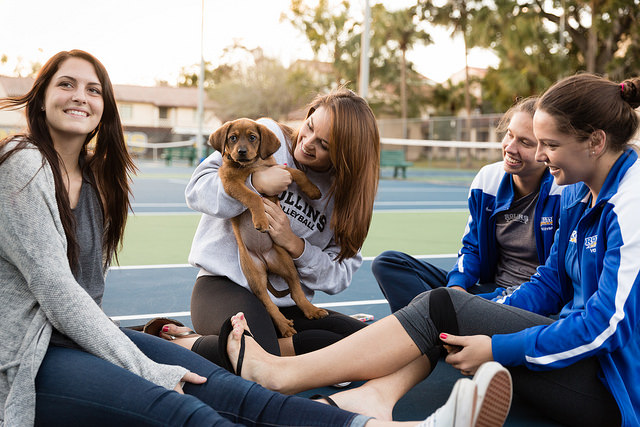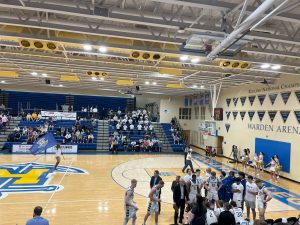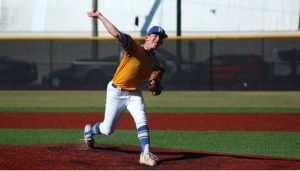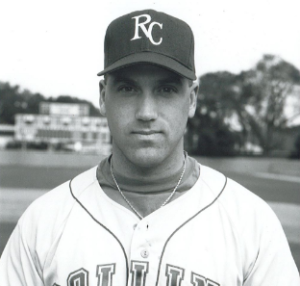Months after the tragic suicide of a baseball player, the Wellness Center is working with student athletes to gain a better understanding of their mental health needs and offer suicide prevention training.
The Wellness Center’s main priority is to work on suicide prevention through the Question, Persuade, Refer (QPR) program, a national suicide prevention training program that was started in 1999.
Starting this semester, the Wellness Center has begun training athletes and coaches in QPR. Their current goal is to have a quarter of the campus population trained in QPR over the next three years. The $305,848 Garrett Lee Smith Campus Suicide Prevention grant Rollins was awarded earlier this semester will also help in this mission.
This program involves training that can range from 90 minutes to two hours and teaches people how to properly ask if someone has been having suicidal thoughts or is currently suicidal, persuade them to seek help, and how to refer them to appropriate resources.
Prior to the suicide, QPR training was reserved for Residential Life staff, such as peer mentors, residential assistants, and house managers.
Connie Briscoe, director of the Wellness Center, also spoke of the Captain’s Council, a group of student athlete leaders who meet once a month at the Wellness Center with one of the counselors to talk about problems their teams and peers are facing, as well as how best to address those issues and show their support. “They let us know what’s going on with our athletics community,” said Briscoe.
Briscoe said that the Wellness Center is primarily focusing on building a good gatekeeping community of peers who will be able to recognize when a student is struggling and properly offer them assistance.
“We want to make sure all coaches and athletes are aware of our services. We reach out in anyway that we can,” said Briscoe.
She also mentioned that while the Wellness Center has been investigating similar suicide prevention programs to implement, QPR is the only concrete program for now.
Meghan Harte Weyant, dean of students and assistant vice president for student affairs, praised the work and openness the student athletes have shown amidst this struggle. “We’ve seen student athletes be really responsive to participating in QPR,” said Weyant.
“Rollins is incredibly lucky to have a center that is so responsive to our community needs and individual student needs.”
Meghan Harte Weyant, dean of students and assistant vice president for student affairs
Weyant said that she is most grateful for how the Wellness Center does their best to make same-day appointments for struggling students. “As we experience campus crises or trends, the team always makes sure someone is available to be part of that response. They’re always willing and excited to talk about being preventative and proactive,” she said.
“We’ll be doing focus groups with different students across campus to know how to help that particular group. I’m learning better about the specific needs of particular groups and how we can best meet them,” said Briscoe.
“Following any death by suicide, we always reach out to support the community along with the groups who were most directly impacted. We arrange opportunities to meet with them or have them come to the Wellness Center and try to meet their needs wherever they’re at,” Briscoe said.
For those struggling with thoughts of suicide, students should call 407-628-6340 during Wellness Center regular hours. In case of an emergency after-hours, call 833-848-1761 to be connected to a counselor.







Be First to Comment